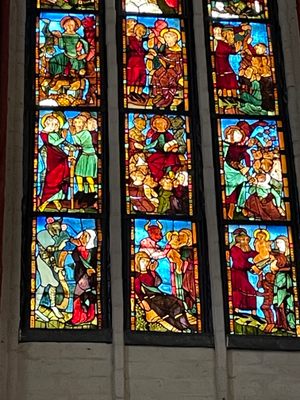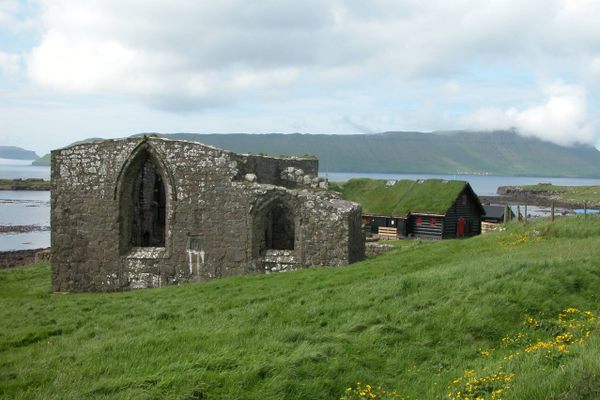About
The St. Marienkirche church in Frankfurt dates from 1253 and was extended over the next 300 years. But its age isn’t the only reason this church is noteworthy—it’s home to a spectacular display of stained-glass windows with a tumultuous history.
The 36-foot-tall stained glass windows were created between 1360 and 1370. The final window tells, in 36 scenes, the legend of the Antichrist. This extensive presentation on a stained glass window is unusual in art history and features pink horned devils, winged demons in poison green, and Satan himself.
The Antichrist goes to Jerusalem as a wandering preacher, captivating people with his miracles. However, he does not shy away from violence, and those seduced by him are sworn to mischief. The tale is both a way of explaining phenomena such as crop failures and plagues that were happening at the time and also a metaphor on choosing how to live one's life.
The artwork's overall presentation is a well thought-out composition, intended for the illiterate people of the time. The stained-glass windows also feature Adam and Eve, the construction of Noah's Ark, and the life of Christ. Unusually, the windows feature several Jews and, despite the persecution of Jews at the time, only three of the 19 bear the T of the Antichrist. Historians attribute this unusual depiction to Ludwig the Elder of Wittelsbach, who granted the Jews protection and freedom of trade.
The windows were removed during World War II for protection, and were considered lost since the end of the war, as the Soviet forces had taken them. In 1991, the Soviet newspaper Literaturnaya Gazeta published the first reference to their whereabouts, and in 1994 a petition was made to the Russian prime minister for their return. The first panes were returned in 2005, leading to further discoveries of the other panes. The fully restored windows can now be seen in the Marienkirche since February 2009.
Related Tags
Community Contributors
Added By
Published
July 1, 2019

































